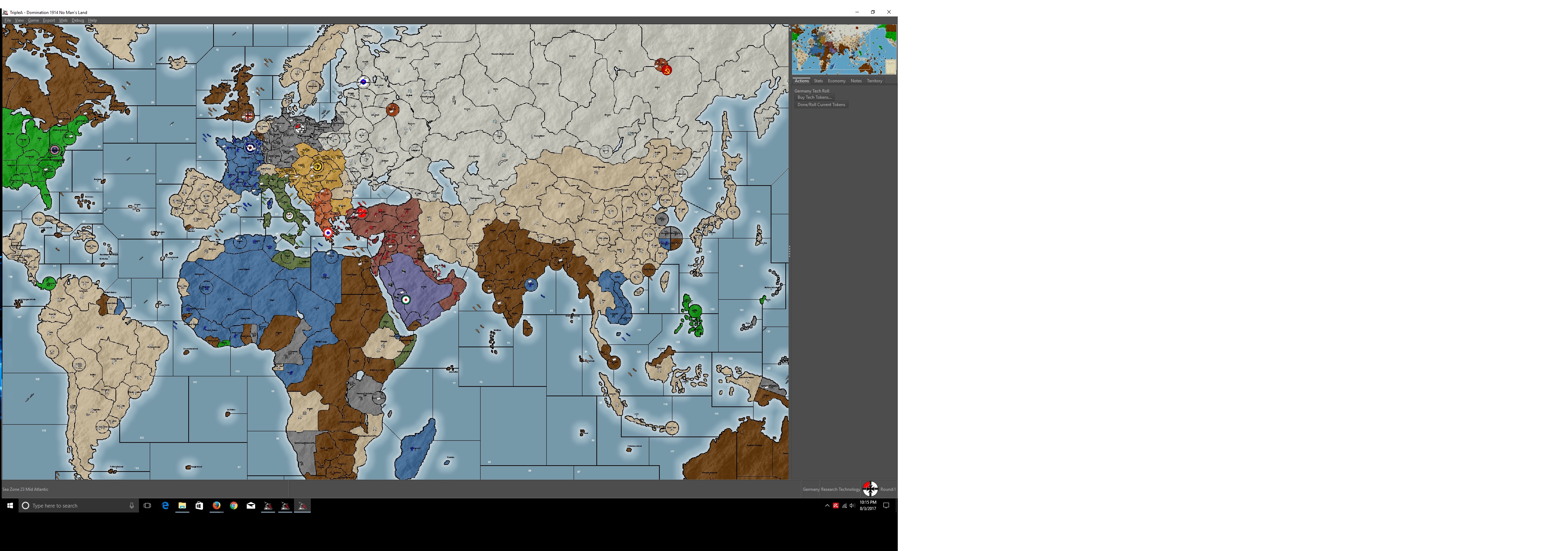@CWO:
I don’t see how putting Mannstein in charge of planning Sea Lion would have compensated for the material deficiencies that made such an operation a virtual impossibility for Germany in 1940. The British and the Americans, two first-rate sea powers, took two whole years (1942 to 1944) to build up the physical infrastructure of their own cross-Channel invasion, and that’s even taking into consideration that they started out in 1942 with much more significant existing naval assets than Germany ever had.
The other material disadvantage under which Germany operated during most of the war, and which Mannstein could not have corrected unless he’d perhaps deposed and replaced Hitler as Fuhrer of Germany, was that the Nazi regime was pathetically inept at making efficient use of its economic and industrial base. By late 1941, Germany controlled so much of Europe (including the USSR’s prime agricultural and industrial areas) that it had the potential to be an economic superpower – a potential advantage that (thankfully) it never exploited effectively. Germany didn’t even bother putting its economy on a full war footing until after the fall of Stalingrad in February 1943, whereas Britain mobilized its own economy virtually from day one of the war. Germany also frittered away its resources by pursuing helter-skelter a plethora of redundant or pointless military hardware development projects, in contrast with the Soviets who stuck to producing (and incrementally improving) just a few basic types of tanks and aircraft. Also, the Wehrmacht was so fussy about quality control that mass-production of major weapons like tanks was severely hampered. So as a result of all this (to give just one example), the USSR produced many more tanks than Germany, and did so using much smaller quantities of steel – or to put it another way, the Soviet Union, for all of its industrial primitiveness, ended up being more industrially efficient that Germany in converting raw materials and labour into operationally practical weapons of war. Albert Speer might have been in a position to fix some of these basic infrastucture problems if he’d been put in charge of the economy two or three or four years sooner, but the best that Mannstein – however brilliant he was on the battlefield – could have done as an army officer to improve Germany’s material position might have been to order the Wehrmacht to stop obsessing about every rivet on the production lines.
You’ve made good points in your post.
Had Operation Sea Lion succeeded in 1940, it would have been because of two reasons:
- Because Germany had achieved air superiority.
- Because the British Army was temporarily very weak; so that even a small invasion force could achieve victory.
After the fall of France, Germany had a brief window of opportunity during which the British Army was very weak.
the Nazi regime was pathetically inept at making efficient use of its economic and industrial base.
They were getting better at that as the war proceeded. Germany produced 15,000 military aircraft in 1942, and 41,000 military aircraft in '44. Germany produced 5,500 tanks in '42, and 19,000 tanks in '44. Moreover, the production in '44 contained a greater percentage of heavy tanks than had been the case in '42. Had Germany’s E-Series tanks been put into production, the pace of tank production could have been ramped up much more.
The Soviet Union, for all of its industrial primitiveness, ended up being more industrially
efficient that Germany in converting raw materials and labour into operationally practical weapons of war.
True. Part of the reason for the above may be due to the lingering effects of the Versailles Treaty. Prior to 1933, the Versailles Treaty was like a noose, strangling both Germany’s economy and her military. It took Hitler a little time to escape from that noose completely. During the mid-'30s, Germany had to figure out how to create a real military; while also building the industrial base necessary to support that military. By 1938, it still didn’t have a good tank design–a problem which the annexation of Czechoslovakia helped solve. In 1939 Germany had light tanks only. By 1940 a few medium tanks were added to the force mix. In 1941 it was realized these medium tanks were greatly inferior to the T-34.
the best that Mannstein – however brilliant he was on the battlefield – could have done
as an army officer to improve Germany’s material position might have been to order
the Wehrmacht to stop obsessing about every rivet on the production lines.
Had von Manstein been in charge of the German military, it’s possible his brilliant generalship might have been enough to offset Germany’s (considerable) strategic disadvantages. Not necessarily likely, but possible. Those strategic disadvantages were so overwhelming that you wouldn’t think any general could have overcome them.
